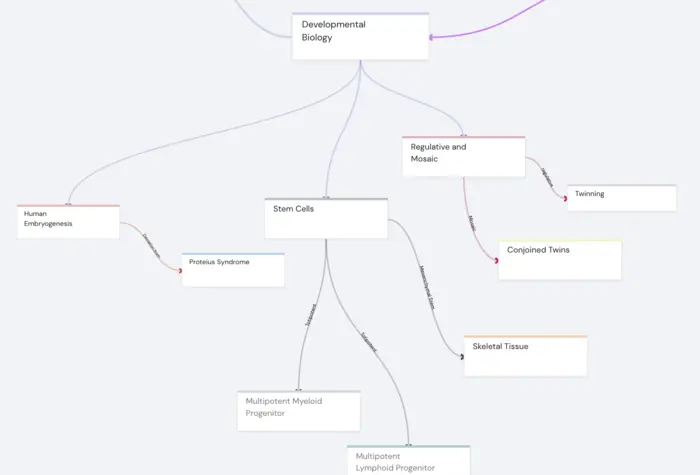Trying to find an efficient way to study with flashcards but finding Anki's platform challenging to use? You're not alone! Many lifelong learners like yourself are increasingly seeking alternatives to Anki for a refreshing and efficient take on flashcard learning.
Anki at a Glance:
- What it offers: Spaced repetition flashcards
- Platforms: Available on desktop and mobile, with a major price disparity for iOS users
- Complexity: High, can be time-consuming to set up and manage decks
- Design: Outdated, particularly its desktop version that lacks regular feature updates
Despite its proven effectiveness in facilitating memory retention, Anki does pose some challenges for users. Many learners find Anki's interface outdated and setting up decks complex and time-consuming. It falls short in support for intuitive, hassle-free learning experiences. Plus, the spacing algorithm while effective if used properly, can lead to increased review loads if learners rely on it too much without consolidating their understanding with other study techniques. Oh, and let's not forget that hefty $25 price tag for iOS users.

It's no wonder you're seeking fresh, user-friendly, and efficient alternatives to Anki! In the spirit of advancing the learning journey, we've got you covered. We bring you five top alternatives to Anki for effective flashcard learning. Keep reading, your perfect flashcards companion could be just a few scrolls away!
Top Anki Alternatives
To help you find the best Anki alternative for your learning style, we've listed five top picks. Each of these platforms offers unique features and benefits that make them stand out as excellent flashcard learning tools.
Quizlet: A User-Friendly Alternative
Features of Quizlet
Quizlet is a popular flashcard app known for its user-friendly interface. It allows you to create your own flashcards, use sets created by other users, and even embed images and audio into your flashcards for a more interactive learning experience. Quizlet also offers various study modes, including matching games and tests, which make studying more engaging.
How Quizlet Compares to Anki
Unlike Anki, Quizlet does not offer a spaced repetition feature. However, its simplified interface and interactive study modes make it a favorite among users who prefer a more straightforward and enjoyable approach to flashcard learning.
Kahoot!: A Gamified Learning Experience
Features of Kahoot!
Kahoot! is a unique flashcard app that transforms learning into a game. It allows you to create quizzes and invite others to participate in a competitive learning experience. Kahoot! also provides detailed performance reports, helping you track your learning progress.
How Kahoot! Compares to Anki
While Anki focuses on individual learning with spaced repetition, Kahoot! encourages collaborative and competitive learning. This makes it a great choice for learners who thrive in interactive and social learning environments.
Brainscape: A Reliable Learning Tool
Features of Brainscape
Brainscape is a comprehensive flashcard app that uses a scientifically-proven learning system to help you study more efficiently. It allows you to rate your confidence in each flashcard answer, which then determines the frequency of the card's repetition.
How Brainscape Compares to Anki
Similar to Anki, Brainscape uses a spaced repetition system. However, Brainscape's unique confidence rating feature provides a more personalized learning experience.
StudyBlue: A Comprehensive Study Platform
Features of StudyBlue
StudyBlue is a versatile flashcard app that allows you to create flashcards, notes, and even study guides. It also offers a collaborative feature where you can share and access resources from other users.
How StudyBlue Compares to Anki
While Anki focuses mainly on flashcards, StudyBlue offers a more well-rounded study platform. This makes it a suitable choice for learners who prefer having all their study materials in one place.
Traverse: A Modern Approach to Learning
Features of Traverse
At Traverse, we believe in a holistic approach to learning. Our platform offers not only fully customizable flashcards but also mind maps, color coding, and freehand drawing features. This allows you to form chunks of knowledge, visualize your thoughts, and create neat, organized notes. As our expert, Dominic Zijlstra, explains, "Flashcards are an important part of studying, so we support everything that Anki does, but we go even further."
How Traverse Compares to Anki
While Anki has built up an extensive community over time, Traverse focuses on providing a complete, simple-to-use interface. If you're serious about becoming an academic top performer, and want a platform that supports a holistic effective study process, Traverse is the perfect Anki alternative for you.
So, whether you're a casual learner or an academic high-achiever, there's an Anki alternative out there that's just right for you. Happy studying!
Addressing Common Questions About Anki and Its Alternatives
As we dive deeper into flashcard learning, answer some frequently asked questions about Anki and its alternatives.
Why Some Users Don't Like Anki
Firstly, let's tackle why some people might not be huge fans of Anki. The main reason seems to be its user interface. For some, Anki's design can appear outdated and not as intuitive as some of the other flashcard apps available. This can make the learning journey less enjoyable and more frustrating, which isn't what we want when we're trying to absorb new information.
Additionally, as per a case study from Mandarin Blueprint, the process of updating, improving, or adding content can be quite a hassle with Anki, making it less efficient for both teachers and learners.
Is Anki No Longer Free?
The question of Anki's cost is another common inquiry. Anki is still free on Android devices, and the desktop version is also available without charge. However, for Apple users, the Anki app comes with a $25 price tag. This fee is used to support ongoing development, making sure Anki stays a top-notch learning aid.
Are There Better Alternatives to Anki?
Many users find themselves asking if there are better alternatives to Anki. The answer is a resounding yes! As we have explored, there are several quality Anki alternatives available, each with its unique features and advantages. These alternatives include Quizlet, Kahoot!, Brainscape, StudyBlue, and of course, our very own Traverse.
Dominic Zijlstra, our expert at Traverse, particularly praises how our platform offers a completely science-backed approach, combining flashcards with mind maps, drawing, and note-taking. Plus, you can move your Anki decks straight into Traverse, so you can seamlessly continue your learning journey with us.
In conclusion, while Anki has been instrumental in flashcard learning, it's not the only tool out there. Depending on your personal study style, learning goals, and platform preferences, there's an Anki alternative perfectly suited for you.
Conclusion
Recap of Top Anki Alternatives
We've explored top Anki alternatives that cater to the diverse learning needs of today's tech-savvy learners. Each alternative has its unique features and strengths:
- Quizlet offers a user-friendly interface and a wide array of study modes, making it a versatile and easy-to-use study tool.
- Kahoot! turns learning into a fun and interactive game, encouraging engagement and boosting learning motivation.
- Brainscape provides a reliable and scientifically-backed learning experience with its Confidence-Based Repetition system.
- StudyBlue offers a comprehensive study platform with a variety of resources and study modes that cater to different learning needs.
- Traverse, an Anki alternative developed by our team, combines spaced repetition flashcards with mind mapping and note-taking techniques, offering a more effective and efficient learning experience.
Final Thoughts on Choosing the Right Learning Tool
Finding the right learning tool is a personal journey. What works best for one person may not work as well for another. It's essential to try out different tools, understand their strengths and limitations, and determine which one aligns best with your learning style and goals.
While Anki has been instrumental in flashcard learning, it's not the only tool out there. And as Dominic Zijlstra, our expert at Traverse, pointed out, "Anki’s inability to adapt to the changing landscape of learning technologies is severe." This has led to the emergence of new methodologies and tools that offer more effective ways to study and retain knowledge.
Whether you're seeking an alternative due to Anki's complexity, its outdated user interface, or you're simply looking for a fresh approach to flashcard learning, we hope this guide has provided valuable insights to help you make an informed decision.
To learn more about how Traverse is redefining the flashcard learning experience, explore our spaced repetition, mind mapping, and note-taking techniques.
The best learning tool is the one that keeps you engaged, helps you understand the study material, and supports you to achieve your learning goals. Happy studying!


